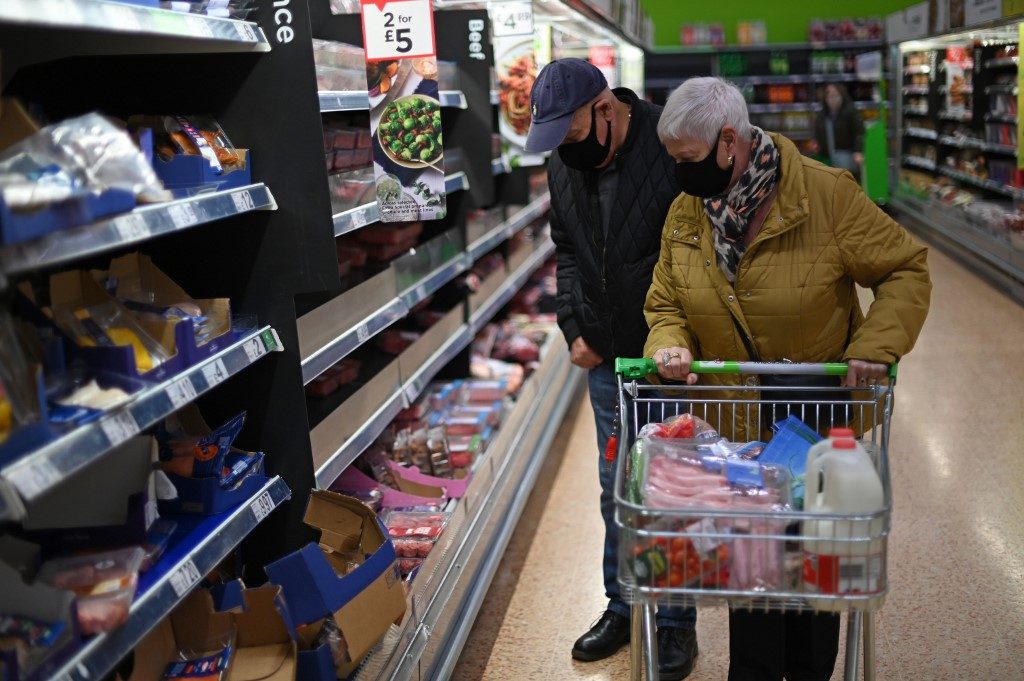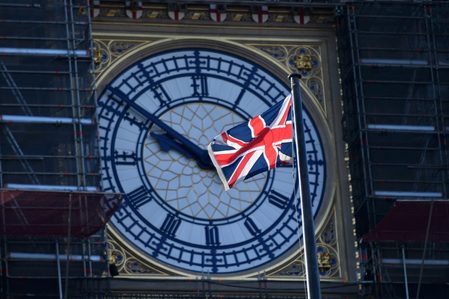SUMMARY
This is AI generated summarization, which may have errors. For context, always refer to the full article.

Despite the free trade deal signed by London and Brussels, suppliers of food and medicine fear the rapidly introduced changes will disrupt supplies and increase costs, undercutting government claims of a post-Brexit dividend.
While Boris Johnson had promised an “oven-ready” deal a year ago, the British prime minister eventually “delivered us 4 working days”, the Food and Drink Federation complained ahead of Britain leaving the EU’s single market at the close of 2020.
Minette Batters, president of the National Farmers’ Union, said members “do anticipate that there will still be disruption to trade at the border,” despite the deal signed on Wednesday.
As many companies rushed to order in more stock or fulfill orders delayed by coronavirus lockdowns, England’s Channel ports, particularly Dover, were already overflowing ahead of the deal’s announcement.
The situation worsened when a number of European countries closed their borders with Britain for two days ahead of Christmas, seeking to curb the spread of a new, more contagious variant of COVID-19.
Thousands of lorries heading to ports got stuck in vast traffic jams and it took several days and the help of the armed forces to unravel the situation.
Ian Wright, chief executive of the Food and Drink Federation, said “last week’s chaos at Dover and the last-gasp nature of this deal means that there will be significant disruption to supply and some prices will rise.”
While the compromise deal between London and the EU lifted the threat of quotas and tariffs, all the new checks and forms to fill will take up time and push up costs for food and drug companies, trade associations complain.
Around 30% of the food eaten in the UK comes from the EU. Britain imports almost half of its fresh vegetables and most of its fruit.
But John Allan, chairman of the market-leading Tesco supermarket giant, sought to reassure consumers, telling the BBC that the new administrative costs would “hardly be felt in terms of the prices consumers are paying.”
Risks for healthcare
But smaller food businesses do not enjoy the heft of Tesco. And the changes also affect the import and export of medicines amid the pandemic.
The deal does not remove difficulties over “the flow of vital supplies into the UK,” Mark Dayan of the Nuffield Trust, an independent healthcare think-tank, said in a statement.
He praised the deal for agreeing “mutual recognition of inspections for medicine factories, and some cooperation at customs,” but cautioned that “the red tape required to get vital products in and out of the UK is still going to be multiplied.”
This will make it more difficult and expensive to “get supplies to the NHS (National Health Service) or to sell them competitively into Europe,” he warned.
It was also not clear whether the deal provided for mutual recognition of standards for ventilators and face masks essential to combat COVID-19, he said.
In the case of medicines with a short shelf life, Britain’s health department “has asked companies to ensure that they can fly these medicines in from the EU in the event of supply disruption,” according to the Royal Pharmaceutical Society.
It also said the government has secured extra warehouse space and more ships including priority for cargos of medicines on ferries from certain ports.
Nevertheless, Dayan, writing in the British Medical Journal, said that given the need for a “major logistical and legal shift overnight” and the fact that Britain has suffered shortages of generic drugs in recent years, it would “take a lot of bravery to promise no shortfalls would occur.”
“There will be changes,” Johnson conceded in a BBC interview Wednesday, while insisting that Brexit would lead to a trading boom through “free trade deals with other countries around the world.” – Rappler.com
Add a comment
How does this make you feel?

There are no comments yet. Add your comment to start the conversation.